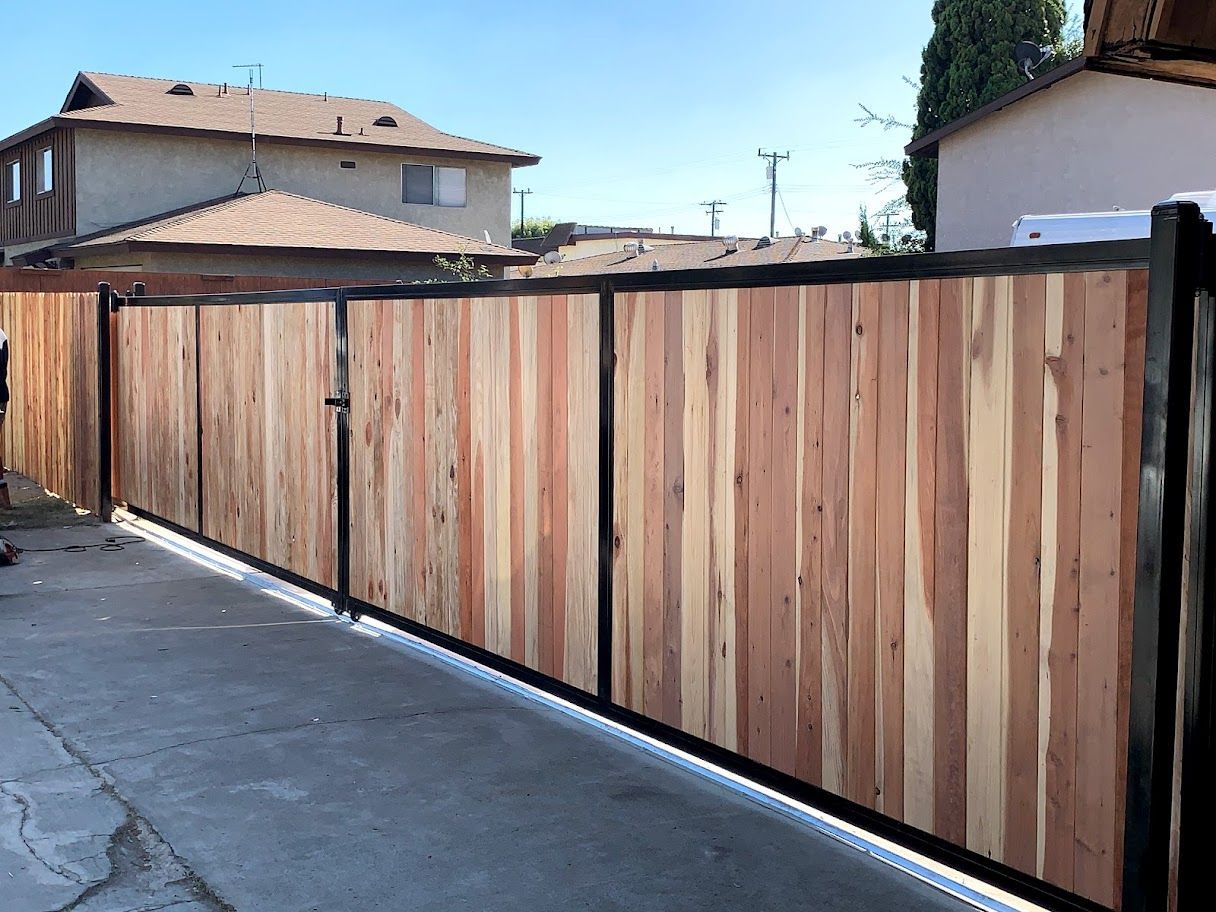All Categories
Featured

When mounting a fencing, picking the best product is crucial to stabilizing capability, looks, and budget. Wood, plastic, and light weight aluminum are amongst one of the most typically chosen fencing products, each with its staminas and downsides. This guide discovers the pros and disadvantages of these choices to aid you make an educated decision.

Wood Secure Fencing. Pros:. All-natural Beauty: Wood's classic appeal can boost any type of building with its warm and traditional appearance. Personalized: You can paint, stain, or carve timber to fit your style preferences. Affordable: Wood fence is initially a lot more budget-friendly contrasted to some other products. Eco-friendly: As a sustainable resource, wood is eco-friendly and frequently considered green. Cons:. Maintenance-Intensive: Routine securing, painting, or discoloration is required to avoid damages from climate and pests. Prone to Degeneration: Without correct treatment, timber can rot, warp, or fracture with time. Much shorter Life expectancy: Typically, wood fencings last 10-15 years, relying on the sort of timber and upkeep. Timber is a terrific alternative for those that value looks and want to spend in routine upkeep to protect its look and sturdiness.
Plastic Fencing. Pros:. Reduced Maintenance: Plastic calls for marginal care-- just occasional cleaning with soap and water. Weather condition Resistant: It does not warp, rot, or catch insect damage, making it highly resilient in different environments. Durability: Plastic fencings can last 20-30 years with little to no repair work. Design Selection: Available in a variety of colors, textures, and designs, consisting of wood-like looks. Disadvantages:. Greater Initial Expense: Plastic fencings are much more expensive upfront contrasted to wood. Vulnerability to Cold: In very chilly weather, vinyl can come to be weak and vulnerable to fracturing. Limited Fixing Options: Matching replacement panels can be testing if damages takes place. Vinyl secure fencing is suitable for house owners searching for a lasting, low-maintenance service that provides modern convenience.

Light Weight Aluminum Fencing. Pros:. Rust-Proof: Light weight aluminum withstands rust, making it an outstanding choice for damp or humid atmospheres. Long lasting: In spite of being light-weight, light weight aluminum is strong and can withstand harsh climate condition. Reduced Upkeep: It needs very little upkeep, generally only periodic cleaning. Long Life expectancy: Aluminum fences can last decades without substantial degeneration. Elegant Style: Commonly utilized for ornamental functions, light weight aluminum fence includes a smooth, sophisticated want to residential properties. Disadvantages:. High Preliminary Financial investment: Aluminum fencings are amongst the pricier choices on the marketplace. Less Privacy: The open layouts common with light weight aluminum secure fencing don't offer much privacy. Vulnerable to Damage: While sturdy, aluminum can dent if hit with adequate pressure. Aluminum is an exceptional selection for home owners focusing on aesthetics and toughness without calling for much upkeep.
Making Your Decision. When determining between vinyl, wood, or aluminum secure fencing, consider your priorities:
Timber fits those who appreciate a natural appearance and don't mind placing in upkeep effort. Vinyl is the most effective choice for those looking for a low-maintenance, weather-resistant remedy. Aluminum supplies sleek style and resilient longevity yet may lack privacy. By meticulously evaluating these products' functions, you can pick a fencing that complements your home while fulfilling your aesthetic and practical requirements.
Latest Posts
Recognizing Roofing Warranties: What Homeowners Must Know
Published May 20, 25
1 min read
Enjoy the Flavors of Yesterday's Tavern
Published May 19, 25
1 min read
Discover Top Vision Solutions in Panama City, FL – Eye Center South Specialists
Published May 18, 25
1 min read